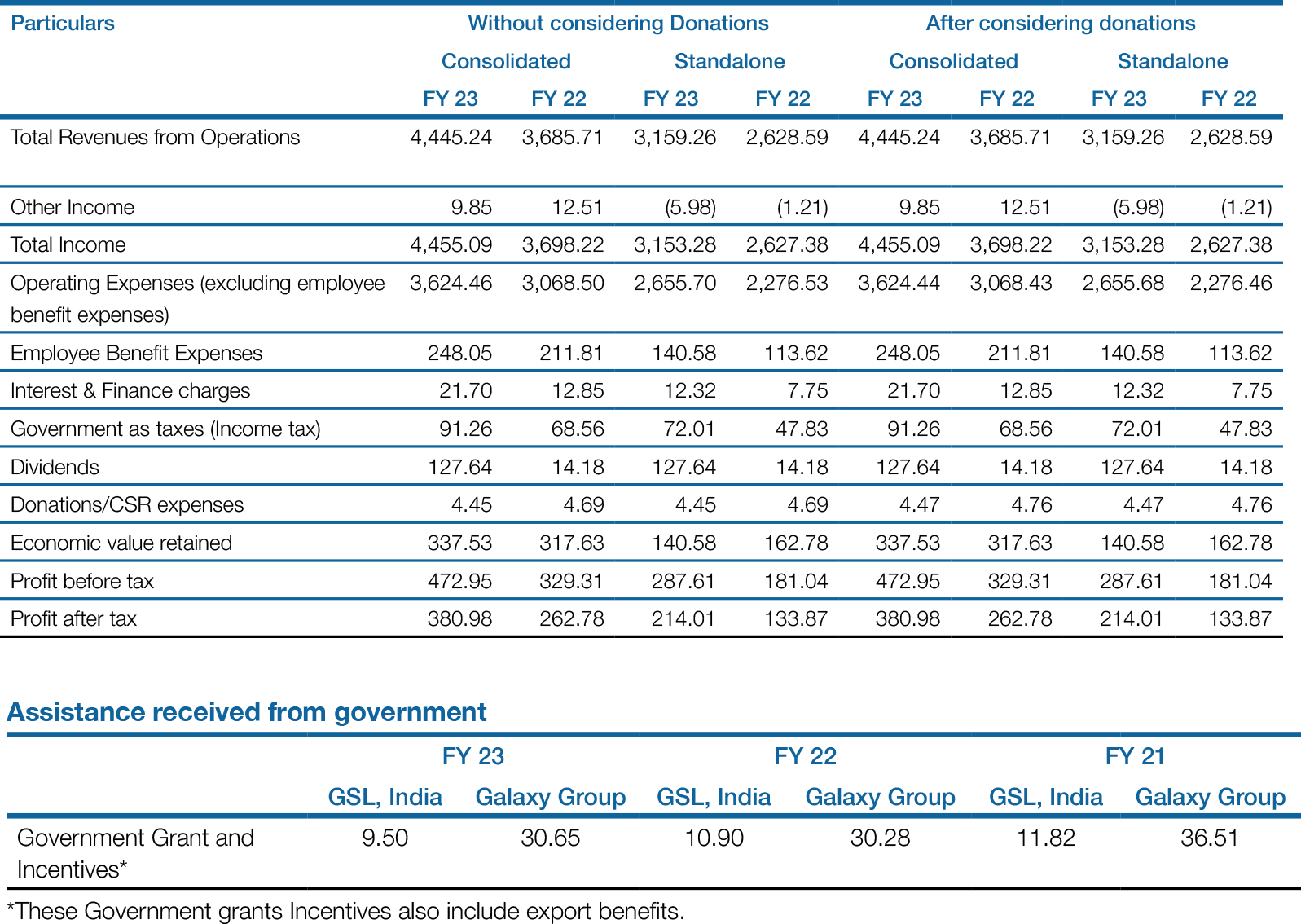
Impacted

Galaxy’s Code of Conduct and Human Rights Policy serve as foundational documents outlining our principles, expectations, and guidelines for preventing and combating corruption. These policies underscore our zero-tolerance stance toward corruption, communicating employees’ responsibilities regarding ethical conduct. They contain specific provisions addressing anti-corruption and bribery, setting clear expectations for employees, contractors, and business partners.
i) Galaxy conducts regular training programs and awareness initiatives to educate employees and stakeholders about the importance of ethical conduct, including the risks associated with corruption.
ii) We emphasize transparency and accountability in our operations, including financial management, reporting, and decision-making processes. We collaborate with suppliers, contractors, and business partners to ensure they adhere to similar anti-corruption values and standards. Galaxy is dedicated to continuous improvement in its anti-corruption efforts.
Galaxy has well-structured committees, including the Audit Committee and Risk Management Committee, to review and assess risks, ensuring the institutionalization of control systems and vigilance mechanisms. We encourage employees and stakeholders to use “Speak-up Boxes” placed at designated locations to report concerns, wrong practices, or any actions jeopardizing our or our customers’ interests.
We uphold transparency in our reporting practices, including disclosures of compliance, violations of the code of conduct, and any human rights issues in various reports such as the Annual Report and Sustainability Report.
Galaxy ensures that conflicts of interest are disclosed and appropriately managed. Directors disclose their interests at the beginning of the year, and any changes in directorship are promptly communicated to the Board. The Board of Directors and senior management adhere to the provisions of the Code of Conduct to maintain ethical conduct and transparency.
Impacted

We actively foster a culture that encourages employees to speak up and report any unethical behaviour without fear of reprisal. The Whistle Blower Policy serves as a critical tool in this endeavour, providing a safe and confidential channel for employees to voice their concerns. We understand that promoting transparency and accountability is essential for maintaining the trust and integrity of our stakeholders.
Our Whistle Blower Policy ensures that employees have a secure environment to express concerns, ensuring that no poor or unacceptable practices go unaddressed. This policy applies to all Galaxy stakeholders and is accessible through our corporate website and e-learning modules, ensuring that all constituents are aware of the process.
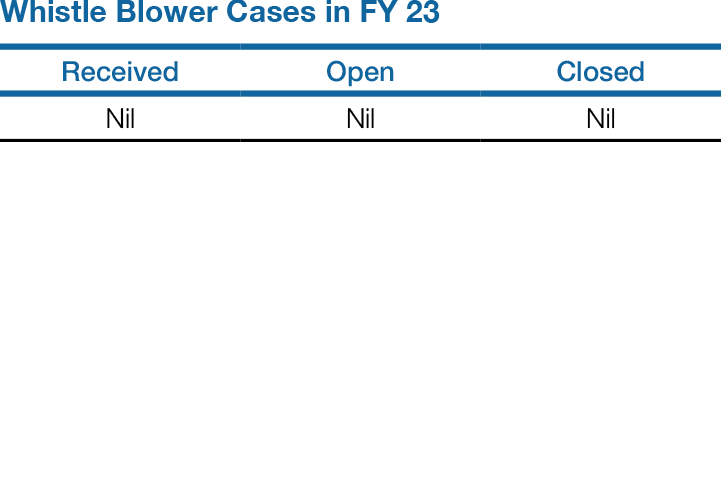
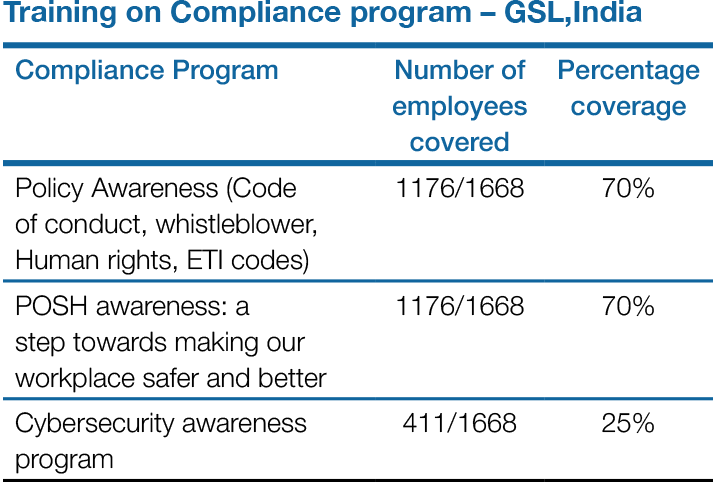
Impacted

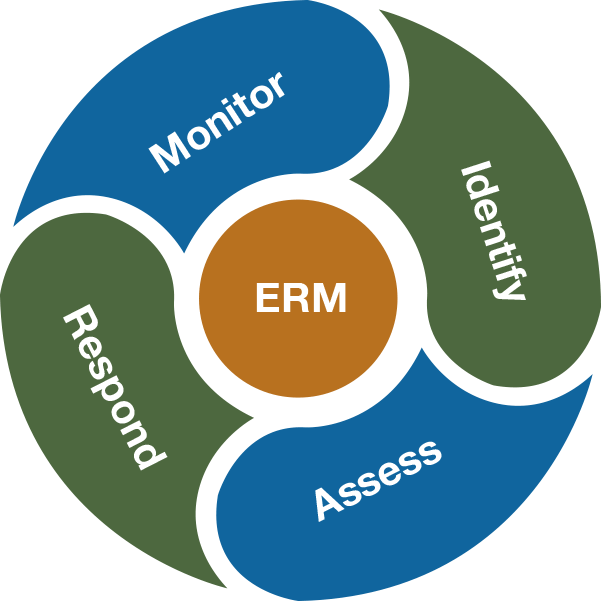
ERM serves as a vital framework for managing risk and typically involves the following key steps:
1. Identification of Risks and Opportunities:
ERM begins by identifying specific events or circumstances that have relevance to the organization’s objectives. These events can encompass both risks (potential negative impacts) and opportunities (potential positive impacts).
2. Assessment of Risks and Opportunities:
Once identified, these events are thoroughly assessed. This assessment involves evaluating two critical aspects:
Likelihood: The probability or chance of an event occurring.
Magnitude of Impact: The extent of the consequences or effects that the event may have on the organization.
3. Determination of Response Strategies:
Based on the assessment, organizations formulate response strategies. These strategies are designed to address risks by mitigating their impact, capitalizing on opportunities to create value, or both.
4. Monitoring Progress:
ERM is an ongoing process that requires continuous monitoring. Organizations regularly track the implementation and effectiveness of their response strategies. This ensures that they remain aligned with their objectives and adapt to changing circumstances.
By proactively engaging in ERM, organizations can achieve several crucial objectives:
Risk Mitigation: ERM helps organizations identify and mitigate potential risks before they materialize, minimizing adverse impacts on capital and earnings.
Value Creation: ERM is not solely about risk avoidance; it also involves seizing opportunities that can enhance value for stakeholders.
Stakeholder Protection: ERM safeguards the interests of various stakeholders, including owners, employees, customers, regulators, and society at large.
Overall, ERM is a strategic approach that empowers organizations to navigate the complex landscape of uncertainty while making informed decisions that align with their goals and responsibilities to stakeholders.
Impacted
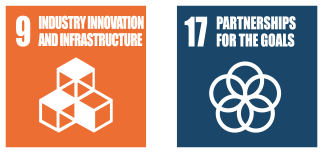
We are committed to unifying all our operational subsidiaries under a single Enterprise Resource Planning (ERP) platform. This strategic initiative aims to streamline processes, enhance collaboration, and facilitate seamless data exchange across Galaxy. This integrated approach to digitalization will enable our company to adapt swiftly to evolving market dynamics, harness emerging opportunities, and remain at the forefront of the industry.
By embracing digitalization, Galaxy aims to enhance its overall operational effectiveness and provide better experiences for its stakeholders. However, along with the benefits of digitalization, we recognize the growing risks and challenges associated with data loss and cyber threats. To address these concerns, Galaxy has made significant investments in Strengthening its security infrastructure. This includes partnering with technology experts and implementing 24-hour surveillance systems to detect and respond to potential security breaches promptly. We strive to safeguard operations, protect sensitive information, and ensure the trust and confidence of our customers and stakeholders.




